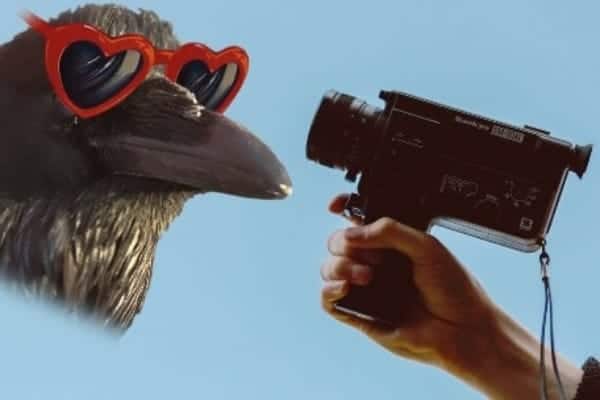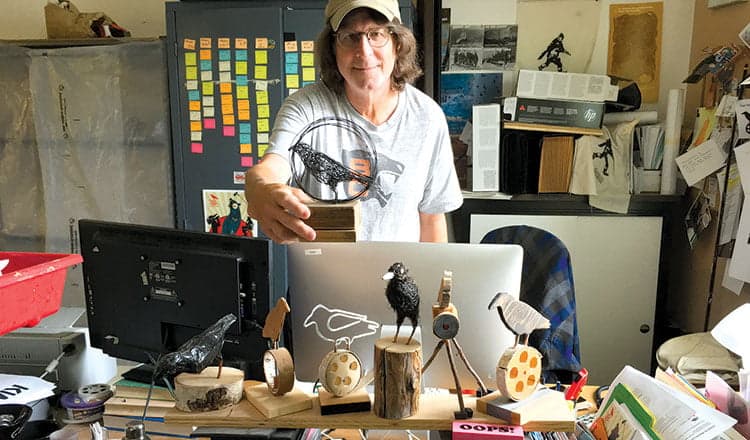Twelve Yukon filmmakers are travelling to Vancouver for the 7th Annual Vancouver Women in Film Festival, held March 8 to 11, at the Vancity Theatre.
Curated by Dawson City filmmaker, Lulu Keating, the showcase of films, “Wise + Wild”, consists of works all made by women. Keating has been paving the way for women in Canadian cinema for over 30 years, and focuses on giving a voice to Yukon storytelling.
“I was looking for films that were fresh and vital and interesting. I wanted them to say something about what it means to live here,” says Keating.
The films range in genre from documentary to drama, experimental and animation. Many are from workshops and competitions around the territory. The showcase includes First Nation films, and spans from Old Crow to Dawson City and Whitehorse.
The stories told range from fanciful romantic shorts, such as Time Lines, directed by Suzanne Crocker, winner of Best Yukon Short at the 2010 Dawson City International Short Film Festival, to the re-creation of a Sayisi Dene legend that uses a combination of live action and animation, Aydaygooay, directed by Mary Code.
Kathryn Hepburn swirled finger-paint to recitations of Shakespeare’s Sonnet #56 in her three-minute animation, Forty-Eight Hour Sonnet, (2011) PHOTO: Kathryn Hepburn – Veronica Verkley incorporated over 200 edits in two-minute short, River Gold, (2011) PHOTO: Veronica Verkley
One of the longest films, clocking 26 minutes, Our Changing Homelands, Our Changing Lives, directed by Arthur (Tookie) Mercredi and produced by Norma Kassi, looks at the effect of climate change on the Vuntut Gwitchin when lakes that existed for thousands of years disappear due to melting permafrost.
The showcase brings light to some of the amazing stories informed by the landscape, told through a female lens.
The showcase is funded by the Yukon Film and Sound Commission.
“This will be very celebratory, with so many of the filmmakers able to be there. The excitement level is going to be very high,” says Keating.
The Women and Film Festival is a vital event to the work of women in the industry. Keating is one of the few female feature film directors in the country.
“You see women as producers, but not as the writer-directors. It’s really startlingly discriminatory when you look at the numbers,” says Keating.
“It’s not that we’re not writing the scripts, it’s that we’re not being financed. It’s not that were not directing the short films, it’s that we’re not being considered capable of doing the features.”
When Keating shot her first feature film, The Midday Sun, in 1989, the number of female directors was higher than today.
“There is a real need to change,” says Keating, “just to get the numbers up to 50 percent [of directors being women].”
For Keating, the storytelling community and collaboration are what filmmaking is about. The Nova Scotian left the filmmaking program at Ryerson University and joined the Atlantic Filmmakers Cooperative (AFCOOP).
Later, she served as president of AFCOOP and was awarded a lifetime membership for her commitment to filmmaking.
Keating is interested in cross-cultural dramas depicting the complexities of modern society.
“I like when the story is about cultures colliding and shaking things up in terms of our perceptions,” says Keating.
She will be shooting a feature film, Based on a True Fantasy, this spring in Vancouver—the result of winning the 2010 Women In the Director’s Chair feature film award. The $100,000 prize includes filming and post production costs.
The film will challenge our notions of female sexuality by depicting a young woman’s wild sexual adventures until she decides she wants to have a kid and is faced with trying to find the right father.
“This is about a unique time in the history of humankind when we are able to be in charge of our own bodies,” says Keating.
It will be a big year for the fiery redhead. She is also working on a screenplay based on a South African woman who gets stuck in the Yukon after an arranged marriage falls through.
“We will see the Yukon through her eyes,” says Keating.
Proving that a woman’s perception and voice in the film industry is necessary to create stories that are unique, dynamic, and challenging, it is no wonder Keating moved her production company, Red Snapper Films, to lead women in the Yukon.



